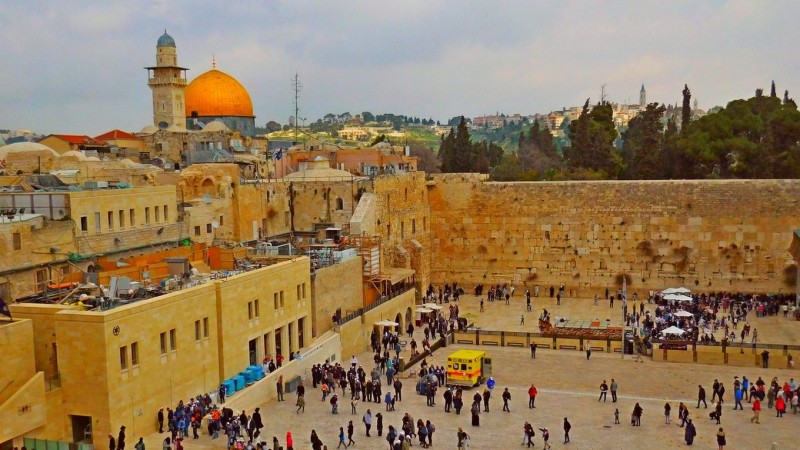
Throughout history, the land that is now known as Palestine has been a melting pot of empires, kingdoms, and states, with a rich tapestry of rulers and cultures. However, it's important to note that before modern times, the concept of a Palestinian state as we know it today did not exist. Let's journey through the centuries to understand the complex history of this region:
1. Ancient Canaanite City-Kingdoms (Before 13th Century BCE)
Long before the modern concept of a Palestinian state, the land now recognized as Palestine was inhabited by various independent Canaanite city-kingdoms. These city-states, including Jerusalem, Jericho, and Hebron, date back to the Bronze Age. They established thriving communities, showcasing advanced agricultural and architectural practices. This era laid the foundation for the diverse cultural heritage that defines the region today.
2. The Theocracy of the Twelve Tribes of Israel (13th - 12th Century BCE)
Around the 13th century BCE, the twelve tribes of Israel established a theocratic society in the region. Led by judges and prophets, this early form of governance marked a significant chapter in the history of the land. The Israelites' religious beliefs and practices began shaping the cultural and political landscape, leaving an enduring legacy.
3. The Kingdom of Israel (11th - 8th Century BCE)
The kingdom of Israel, followed by the kingdom of Judah, emerged as dominant entities during the 11th to 8th centuries BCE. The reigns of notable figures like King David and King Solomon played a pivotal role in shaping the region's political dynamics. Their legacies contributed to the historical and religious significance of the area.
4. The Babylonian Empire (6th Century BCE)
In the 6th century BCE, the Babylonian Empire, under the rule of Nebuchadnezzar II, conquered the region. This conquest led to the Babylonian Captivity, a critical moment in the history of the Jewish people. It is during this time that the First Temple in Jerusalem was destroyed, an event commemorated in Jewish history and faith.
5. The Persian Empire (6th - 4th Century BCE)
Following the fall of the Babylonian Empire, the Persian Empire, under the leadership of Cyrus the Great, allowed the Jewish people to return to their homeland. This period marked the restoration of Jerusalem and the Second Temple, significant events in Jewish history.
6. The Empire of Alexander the Great (4th Century BCE)
The conquests of Alexander the Great in the 4th century BCE introduced Hellenistic influence to the region. This era witnessed a fusion of Greek and local cultures, which left a lasting impact on the land's art, architecture, and language.
7. The Seleucid Empire (4th - 2nd Century BCE)
The Seleucids ruled the region during this period, maintaining a Hellenistic culture. The Seleucids' presence further shaped the cultural diversity and political landscape of the land.
8. The Hasmonean State (2nd - 1st Century BCE)
The Hasmonean dynasty brought a period of Jewish self-rule and independence to the land. The establishment of the Hasmonean state marked a significant chapter in the history of Jewish sovereignty and statehood.
9. The Roman Empire (1st Century BCE - 4th Century CE)
The Roman Empire's control of the region, including during the time of Jesus, had profound implications for the development of Christianity. The birth and spread of this world-changing religion began during this era.
10. The Byzantine Empire (4th - 7th Century CE)
Following Roman rule, the Byzantines introduced Christianity as the predominant religion in the region. The Byzantine Empire's influence further solidified the area's Christian identity.
11. The Sasanian Empire (7th Century CE)
The Sasanian Empire briefly held sway in the region during the 7th century CE, adding another layer to the region's complex history.
12. The Byzantine Empire (7th Century CE)
Following the Sasanian Empire, the Byzantines once again regained control, reaffirming the predominance of Christianity in the region.
13. The Umayyad and Fatimid Empires (7th - 12th Century CE)
Islamic rule from the Umayyad and Fatimid empires marked a significant era in the region. The Umayyads' influence and later the Fatimids' presence introduced Islamic governance and cultural traditions.
14. The Frankish and Christian Kingdom of Jerusalem (12th Century CE)
During the Crusades, the Kingdom of Jerusalem was established in the 12th century. The Crusaders' rule introduced a unique chapter in the region's history, marked by the clash of cultures and religions.
15. The Arab-Kurdish Ayyubid Empire (12th - 13th Century CE)
The Ayyubid dynasty succeeded the Crusaders, bringing the region under Arab-Kurdish rule. This era witnessed a resurgence of Islamic culture and power.
16. The Mamluks of Egypt (13th - 16th Century CE)
The Mamluks governed the territory as part of the Egyptian state. Their rule brought stability and continuity to the region.
17. The Ottoman Empire (16th - 20th Century CE)
The Ottomans controlled the area for centuries until the end of World War I, leaving an enduring imprint on the land's culture and administration.
18. The British Mandate (20th Century CE)
Following World War I, the British Mandate emerged as a transitional period, setting the stage for modern developments in the region.
19. The Modern Era: Palestinian State
It's essential to understand that the modern concept of a Palestinian state emerged in the 20th century, and the region has been a focal point of political and territorial disputes for many years. This historical perspective sheds light on the complexities of the region and its ever-evolving identity.
Palestinian Authority's Controversial Document: Calls for Violence Against Jews
The Flight of the Parsis from Persia and the Transformation of Persia into Iran